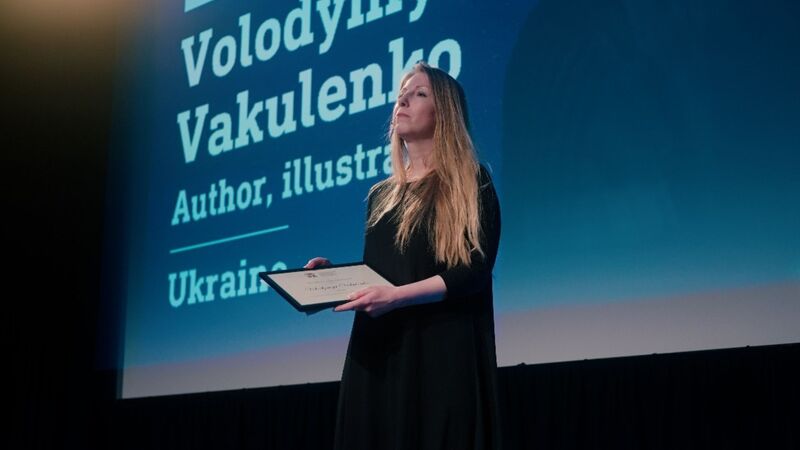You are viewing your 1 free article this month. Login to read more articles.
CILIP publishes guide for libraries navigating 'increasingly challenging debates’
The libraries and information association CILIP has issued updated guidance to “provide library staff with a clear decision-making framework when dealing with complex and challenging issues”, such as protests, hate speech and book bans.
It is the first update to its official guidance in 15 years and was developed in consultation with library workers and leaders in public, school and prison libraries.
The document, entitled Managing Safe and Inclusive Public Library Services: A Practical Guide, has been produced by CILIP with funding from Arts Council England and is based on and replaces the earlier document Guidance on the Management of Controversial Materials in Public Libraries published by the Museums, Libraries & Archives Council (MLA) in 2008.
In its opening pages, the new guidance notes: “When the original Guidance on the Management of Controversial Materials in Public Libraries was published by the Museums, Libraries & Archives Council in 2008, it was against a backdrop of public concern about radicalisation and extremism.
“As we come to renew this guidance in 2023, thanks to the support of Arts Council England, we do so in the context of renewed concerns about freedom of expression, online harms and the marginalisation of entire communities because of their identity. Both sets of issues highlight the central challenge for librarians and library staff wishing to deliver safe, trusted and inclusive services for communities, including learning communities in schools and prisons.”
The new guidance aims to provide a “core set” of “key principles” library staff can rely on when dealing with “complex and challenging issues” and suggests how they can be applied in four specific contexts: the development and management of library stock; the provision of public internet access; the appropriate use of public spaces (including meeting and event spaces); and the provision of publicly accessible events and activities.
The key principles, which are broken down in detail in the report, are: take a risk management approach; promote the safety of library workers; understand the law and its limits; engage with professional values and ethics; reflect on your biases; engage your stakeholders; develop appropriate policies; maintain access to appropriate expertise; make (and document) evidence-based decisions; train your staff; and reflect and learn from experience.
The document emphasises the importance of intellectual freedom and freedom to read. It says: "The role of the library is not to hide or withhold access to challenging ideas – the librarian should never act as a censor – but to present them in their proper context and in such a way that enables the library user to hold them up for critique and scrutiny."
It continues: "These professional commitments are central to the trusted role that libraries hold in our society and they should not be curtailed by any governing body or third party for any reason other than that they are expressly proscribed by law."
A section entitled "The Law and Its Limits" touches on intellectual freedom and its limitations, such as pertaining to material likely to cause "incitement to terrorism" or racial or religious hatred, hate speech, censorship, equalities and protected characteristics.
On stock, the guidance states: “The library has a responsibility to the local community actively and positively to promote resources for learning, education, cultural inspiration and community cohesion... The requirement to respond comprehensively and non-judgmentally to the needs of learners and researchers should be paramount."
It continues, regarding potentially controversial material that may be “regarded by some as culturally or morally extreme or outdated” that “the key consideration is for the library to reach an informed and considered position on them, ideally in discussion with their communities...” and that they should “balance their duty towards intellectual freedom with the potential harms of accessing works that have been linked to radicalisation”.
The guidance also touches on stock selection, and states library staff should ensure “a range of material that reflects the demography of the area and the policy priorities agreed for the library service” and “a diversity of information, opinion and inspirational literature”. It continues: "Instead of being ‘neutral’, librarians and library staff should be aware of their biases, accountable for them and provided with effective and proven examples of ways they can mitigate the impact of those biases on their services."
On books for children it states: “Parents are naturally concerned about the material to which their children are exposed, particularly in the context of school libraries. Many of the contemporary challenges to titles in US schools, for example, hijack the principle of ‘parent empowerment’ in order to justify appeals to ban books.” It says library staff must “manage a fine-balance between the needs of parents and the rights of the learner, but always with a central focus on the safety, security and wellbeing of the child".
There are also sections on protests and book bans. The guidance suggests that “where a librarian finds themselves asked to remove titles, for example by the governors of their school or local councillors, they are encouraged to resists, as far as reasonably possible, to explain to the complainant the implications of censorship and to make CILIP and other bodies aware of the situation (in confidence where necessary)". There is a check-list included in the guidance for dealing with a protest at a library.
CILIP chief executive Nick Poole said of the new guidance: “Libraries exist to ensure that everyone everywhere enjoys the freedom to read, to ask questions and to learn, without fear or favour. In today’s increasingly polarised world, it is more important than ever to ensure that our sector is clear in its opposition to censorship and the promotion of the intellectual freedom of our users.
“Libraries should not be a place to hide from difficult ideas, but to ensure that difficult ideas can be critiqued in their proper context. Thanks to the support of Arts Council England, we have provided this guidance as a point of reference for library workers everywhere on how to navigate increasingly challenging debates while remaining true to the core ethics and values of librarianship.”
Luke Burton, director, libraries, Arts Council England, said: “This is an important piece of research which offers valuable guidance to the library sector. I’m sure that library colleagues will find it helpful when planning how to deal with complex issues so all library users and staff can enjoy libraries as safe, welcoming and inclusive spaces.”

















